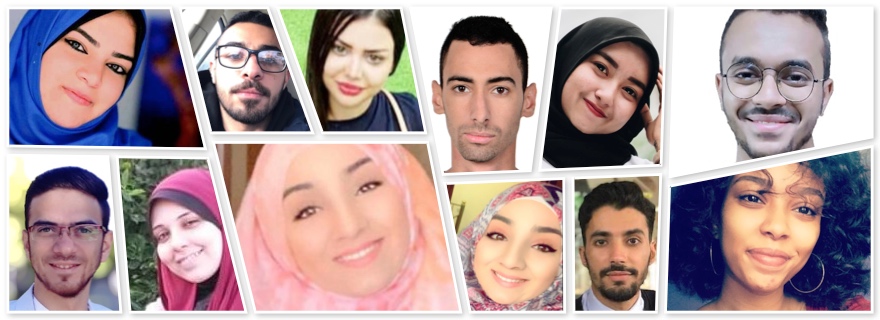What are the advantages of using your local dialect over MSA? And what are the disadvantages?
This is part five in the series “Arabs Say…” featuring Arabic speakers from around the Arab world who gives their views on their language and how it is used today. Of course, we should keep in mind that these are personal views and do not represent the views of everyone in their countries. Still, we can learn a lot about the overall linguistic situation and some commonalities and regional differences.
Some of the advantages, I'd say, is that my dialect, Moroccan Arabic, is easier than MSA. Maybe I'm saying that because I'm used to it and it's the language I hear 24/7, but I think it's a lot easier than MSA and makes conversation flow a lot faster. The disadvantages of using the Moroccan dialect instead of MSA is that other Arabic speakers can't understand most of what we say, so we'd have to start thinking about general words to say or start speaking MSA, so that we can all understand each other and not have any difficulty communicating.

Some of the advantages, I'd say, is that my dialect, Moroccan Arabic, is easier than MSA. Maybe I'm saying that because I'm used to it and it's the language I hear 24/7, but I think it's a lot easier than MSA and makes conversation flow a lot faster. The disadvantages of using the Moroccan dialect instead of MSA is that other Arabic speakers can't understand most of what we say, so we'd have to start thinking about general words to say or start speaking MSA, so that we can all understand each other and not have any difficulty communicating.

My dialect identifies me and my culture and gives access to different languages and cultures. And every word in my dialect has a story behind it, and clearly it easier to use than MSA because I acquired it when I was a child from my family and society, so there is no need to learn MSA because it is not going to benefit me in the economic market. There are no big disadvantages. The only one is because my dialect is not concrete and everyone can make new words versus MSA, which has flexible rules and you can use it in formal documents and speeches.

My dialect identifies me and my culture and gives access to different languages and cultures. And every word in my dialect has a story behind it, and clearly it easier to use than MSA because I acquired it when I was a child from my family and society, so there is no need to learn MSA because it is not going to benefit me in the economic market. There are no big disadvantages. The only one is because my dialect is not concrete and everyone can make new words versus MSA, which has flexible rules and you can use it in formal documents and speeches.

I feel it expresses my thoughts and feelings better, as they are borne out of the conditions and circumstance we go through on a daily basis. Therefore, I feel more comfortable and find it easier to express myself in the Sudanese dialect as opposed to using MSA. Another advantage perhaps would be that I can use it as codes. This applies outside of my country, of course, to communicate without others understanding what I am saying. The main disadvantage is that not many would understand it, or fully understand the extent of my emotions towards an issue. Another issue is that using the dialect so much would decrease your level of MSA.

I feel it expresses my thoughts and feelings better, as they are borne out of the conditions and circumstance we go through on a daily basis. Therefore, I feel more comfortable and find it easier to express myself in the Sudanese dialect as opposed to using MSA. Another advantage perhaps would be that I can use it as codes. This applies outside of my country, of course, to communicate without others understanding what I am saying. The main disadvantage is that not many would understand it, or fully understand the extent of my emotions towards an issue. Another issue is that using the dialect so much would decrease your level of MSA.

My dialect makes it clear for everyone that I am an Egyptian. The Egyptian dialect is very easy to use and it is widely understood. It is also easily distinguished. It is unique, and Arabs realize that you are Egyptian when they listen to your speech. The disadvantage is that people don't give due care to MSA. They neglect it and just focus on the dialect, which could have a negative effect on the MSA. People started to use "Franco Arabic"* and use English words instead of Arabic. We should be proud of our language and we should do our best to learn it. We should also encourage others to learn it not to neglect it that way.
*Franco Arabic: Writing Arabic dialect in Latin characters in text messages and online.
*Franco Arabic: Writing Arabic dialect in Latin characters in text messages and online.

My dialect makes it clear for everyone that I am an Egyptian. The Egyptian dialect is very easy to use and it is widely understood. It is also easily distinguished. It is unique, and Arabs realize that you are Egyptian when they listen to your speech. The disadvantage is that people don't give due care to MSA. They neglect it and just focus on the dialect, which could have a negative effect on the MSA. People started to use "Franco Arabic"* and use English words instead of Arabic. We should be proud of our language and we should do our best to learn it. We should also encourage others to learn it not to neglect it that way.
*Franco Arabic: Writing Arabic dialect in Latin characters in text messages and online.
*Franco Arabic: Writing Arabic dialect in Latin characters in text messages and online.

The dialect has some advantages, such as being a faster way to express some sentences. Also, in the dialect, we do not use letters which are difficult to pronounce. We also do not use any rules of grammar in our conversations, so we don't have to watch out for grammar things. The big and serious disadvantage of using our dialect or any dialect in general is that MSA is getting stranger day by day, and few people know to use it well. Some words of the dialect look weird when they are written because they have always been just pronounced and not written, so maybe some people don't know to read it well. People have difficulty about the letters that are pronounced so similarly, so they have the same problem when they write the dialect words. Some people write them in one way and other people write them in another way. Basically, these words have no base, so you can't determine which the right way to write them. Also, some people can invent new words daily and starting to use them. That's why I said before it's uncontrollable.

The dialect has some advantages, such as being a faster way to express some sentences. Also, in the dialect, we do not use letters which are difficult to pronounce. We also do not use any rules of grammar in our conversations, so we don't have to watch out for grammar things. The big and serious disadvantage of using our dialect or any dialect in general is that MSA is getting stranger day by day, and few people know to use it well. Some words of the dialect look weird when they are written because they have always been just pronounced and not written, so maybe some people don't know to read it well. People have difficulty about the letters that are pronounced so similarly, so they have the same problem when they write the dialect words. Some people write them in one way and other people write them in another way. Basically, these words have no base, so you can't determine which the right way to write them. Also, some people can invent new words daily and starting to use them. That's why I said before it's uncontrollable.

Using my local Palestinian dialect instead of MSA could be more friendly, less formal, easier to understand, more popular, unique as a Palestinian community, and an indicator to the place, class, culture, education, and economic levels. I think using my local dialect and feeling more loyal to it instead of the MSA could affect the spread, use, and existence of MSA in a negative way. This could lead to the demise of MSA and accordingly to difficulties in communication with other Arab communities which differ totally from my dialects, such as Tunisian, Gulf, Algerian, and Moroccan dialects.

Using my local Palestinian dialect instead of MSA could be more friendly, less formal, easier to understand, more popular, unique as a Palestinian community, and an indicator to the place, class, culture, education, and economic levels. I think using my local dialect and feeling more loyal to it instead of the MSA could affect the spread, use, and existence of MSA in a negative way. This could lead to the demise of MSA and accordingly to difficulties in communication with other Arab communities which differ totally from my dialects, such as Tunisian, Gulf, Algerian, and Moroccan dialects.

I don’t think that there are any advantages. I look at it as a social error that all of us got used to it, and we are finding it really hard to change. If we were taught to use MSA from the beginning, it would have been better because our dialects do not follow any rules. Some disadvantages of using our dialect is that there are no exact rules for using the language. Each one uses his own rules, spelling and pronunciation. Furthermore, the Quran is written in MSA*.
*Or Classical Arabic, upon which MSA is based. Arabs generally don't make the distinction between MSA and Classical Arabic that foreign students of the language do.
*Or Classical Arabic, upon which MSA is based. Arabs generally don't make the distinction between MSA and Classical Arabic that foreign students of the language do.

I don’t think that there are any advantages. I look at it as a social error that all of us got used to it, and we are finding it really hard to change. If we were taught to use MSA from the beginning, it would have been better because our dialects do not follow any rules. Some disadvantages of using our dialect is that there are no exact rules for using the language. Each one uses his own rules, spelling and pronunciation. Furthermore, the Quran is written in MSA*.
*Or Classical Arabic, upon which MSA is based. Arabs generally don't make the distinction between MSA and Classical Arabic that foreign students of the language do.
*Or Classical Arabic, upon which MSA is based. Arabs generally don't make the distinction between MSA and Classical Arabic that foreign students of the language do.

The advantage of using my dialect (Levantine Arabic) is that it brings the feeling of belonging to my country of origin. It reflects that I am Lebanese. It is like a passport that shows where I come from when I travel to other Arab countries. Also, the grammatical rules are easier than MSA, and I speak it naturally with no effort. The only disadvantage I might think of is that MSA is used as a lingua franca among Arabs to be able to understand each other. Strictly using my dialect might make it difficult to communicate with other Arabs.

The advantage of using my dialect (Levantine Arabic) is that it brings the feeling of belonging to my country of origin. It reflects that I am Lebanese. It is like a passport that shows where I come from when I travel to other Arab countries. Also, the grammatical rules are easier than MSA, and I speak it naturally with no effort. The only disadvantage I might think of is that MSA is used as a lingua franca among Arabs to be able to understand each other. Strictly using my dialect might make it difficult to communicate with other Arabs.

It makes some variety in the country especially, and in the Arab world generally, so you can feel that the dialect of this country/city/region is related to its own history, traditions, and culture. And it makes a country/city/region distinguished from the others. The disadvantages? Using a dialect makes us forget our native classic Arabic language, and that can make us unable to understand our religion (Islam)'s resources, and that can make us forget our history. Moreover, it can make the communication among the Arabs more difficult.

It makes some variety in the country especially, and in the Arab world generally, so you can feel that the dialect of this country/city/region is related to its own history, traditions, and culture. And it makes a country/city/region distinguished from the others. The disadvantages? Using a dialect makes us forget our native classic Arabic language, and that can make us unable to understand our religion (Islam)'s resources, and that can make us forget our history. Moreover, it can make the communication among the Arabs more difficult.

Well, to be honest, I'm a big fan of MSA. If I could just use MSA for the rest of my life, I would. I think the only advantage of the dialect is to communicate with people that can't understand MSA, such as elderly or illiterate people. The disadvantages of using dialect are that we cannot sense the thrill of MSA since it is so beautiful. The most important disadvantage is that it makes communicating with people from other countries, especially countries of the Maghreb, because they already have difficult dialects.

Well, to be honest, I'm a big fan of MSA. If I could just use MSA for the rest of my life, I would. I think the only advantage of the dialect is to communicate with people that can't understand MSA, such as elderly or illiterate people. The disadvantages of using dialect are that we cannot sense the thrill of MSA since it is so beautiful. The most important disadvantage is that it makes communicating with people from other countries, especially countries of the Maghreb, because they already have difficult dialects.

If I use my dialect of Arabic, it is easier for my to interact with my friends and family and people from my city. Also, when we use the dialect, we don’t usually care about the grammar that much. As I have stated before, people who use MSA to interact with people are suspected as having autism, so it’s socially important and natural to use the dialect for daily communication. Disadvantages? When I use my dialect, people from different areas might not be able to understand me correctly. Also, the dialect is not used or accepted in anything formal or related to government. It is viewed as unserious to use it in something related to government, and it will not be accepted.

If I use my dialect of Arabic, it is easier for my to interact with my friends and family and people from my city. Also, when we use the dialect, we don’t usually care about the grammar that much. As I have stated before, people who use MSA to interact with people are suspected as having autism, so it’s socially important and natural to use the dialect for daily communication. Disadvantages? When I use my dialect, people from different areas might not be able to understand me correctly. Also, the dialect is not used or accepted in anything formal or related to government. It is viewed as unserious to use it in something related to government, and it will not be accepted.

People are more used to the dialect instead of Modern Standard Arabic in their everyday speech, so it's easier to communicate using the dialect. There's really nothing much to be described as an advantage when using the dialect except the easier communication aspect. That's why our studies are encouraging us to use more MSA when talking. There are so many disadvantages to discarding MSA and depending solely on dialect. Firstly, MSA is the language of our religion and holy book, and discarding it means discarding what we stand for. Secondly, we are called Arabs for a reason. The common dialect must not represent our language and culture. And finally, MSA is the official and more polite way to present yourself properly and formally, and if the dialect became the more dominant one, people will lose the ability to be professional here.

People are more used to the dialect instead of Modern Standard Arabic in their everyday speech, so it's easier to communicate using the dialect. There's really nothing much to be described as an advantage when using the dialect except the easier communication aspect. That's why our studies are encouraging us to use more MSA when talking. There are so many disadvantages to discarding MSA and depending solely on dialect. Firstly, MSA is the language of our religion and holy book, and discarding it means discarding what we stand for. Secondly, we are called Arabs for a reason. The common dialect must not represent our language and culture. And finally, MSA is the official and more polite way to present yourself properly and formally, and if the dialect became the more dominant one, people will lose the ability to be professional here.



Very Interesting….. except for the guy who talked about Autism again.
I really enjoy these “Arabs Say…” posts, not just for the insights that they offer to people like me who know (?) MSA and want to pick up a dialect or three, but because of the variety of nations/dialects covered (in addition to the wide array of opinions given) in each one of them.
So many formal institutions, at least here in the West, only offer one or two dialects – Egyptian and Levantine. It’s good to see insight from someone who speaks Omani, or Gulf, or Maghrebi.
The situation for native Arab speakers living in an Arabic country is fundamentally and totally different from a non-native speaker – living in America, Europe, or Japan – who is just interested in this fascinatingly elegant language and the culture. 99% of these people MSA is the first, and for 98% the only interaction with the Arabic language, and Lingualism.com is for these people. My teachers used to tell me that “you shouldn’t waste time on learning a dialect in Budapest, you should focus on MSA and Classical, since a dialect is only usable when you visit a specific country, and anyway you would pick up the local dialect in a couple of weeks, if you have sound MSA”. Even 30 years ago, it was a big question why the hell to learn any variety of Arabic? For practical purposes it’s really a waste of effort, honestly, since all educated and even less educated Arabic people speak fluently English or French. So, it’s really interesting why to keep alive a kind of artificial language, MSA, since it is massively replaced by English. Dialects, on the other hand, are eternal.